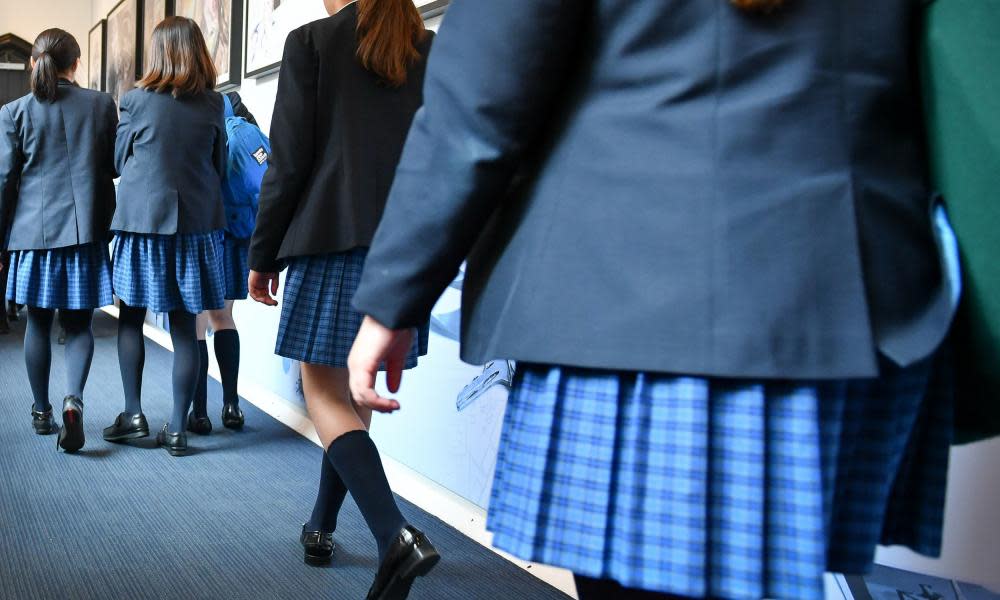Schools need urgent funding to tackle child mental health crisis

As a secondary school teacher, sadly I am utterly unsurprised to read how many children are being treated for mental health problems in England (Record 420,000 children a month in England treated for mental health problems, 22 May).
While your article detailed several supposed causes of increased mental health problems among young people, it strikes me how little it addresses the glaring gap of mental health support and provision in schools. I’ve worked in four state secondary schools in England over the last decade, and in each one the waiting list for students to see an in-school mental health nurse – if there is one at all – has been months’ long. Students simply don’t bother turning to in-school services for help.
Students often turn to teachers and support staff in their hour of need. Of course, we do our very best, but with staff shortages, funding cuts and teacher burnout, there simply aren’t the bodies required to support students in the way they need and deserve. I, like so many colleagues, never resent being the person that students turn to, but teachers are not mental health professionals. If Ofsted were to value mental health provision in schools as highly as, say, academic attainment scores, might schools’ financial priorities realign?
Name and address supplied
• Your article highlights the acute need for government-funded counselling support in every secondary school, academy and further education college. This is something we’ve long campaigned for. Many children and young people are in distress, but aren’t always able to access timely support from local NHS services. Funded school counselling is vital now to ease the strain on those services, to support our children and young people before they reach crisis point, and to help the many more who may be suffering in silence.
We recently surveyed school staff about the impact of school counselling, with 86% saying it’s helped improve attendance, 73% saying it’s helped improve students’ behaviour, and 72% saying it’s helped improve students’ academic attainment.
School counselling is a non-stigmatising and effective form of early intervention for reducing psychological distress. It has a positive effect on confidence, resilience, sense of self-worth, family relationships, friendships, school attendance and academic achievement. Government funding is urgently needed to provide more school counsellors to offer life-changing support for young people in need.
Martin Bell
Head of policy and public affairs, British Association for Counselling and Psychotherapy
• I am a piano teacher, and as someone who has worked on the peripheries of education all my life, I see the ill effects of an exam-obsessed education system, particularly at this time of year. Children are subjected to continuous pressure to “succeed” in exams. This means not just taking public exams, but the buildup of endless mock exams.
All my teenage pupils have been adversely affected, either temporarily stopping what is a cherished hobby of a lifetime before their exams start, or abandoning lessons altogether, to have the time to prepare for GCSEs/A-levels. Should we still be surprised at the massive rise in children’s mental health problems?
Stephen Baron
London
• Have an opinion on anything you’ve read in the Guardian today? Please email us your letter and it will be considered for publication.

 Yahoo Movies
Yahoo Movies 
